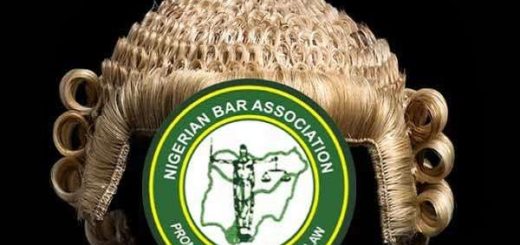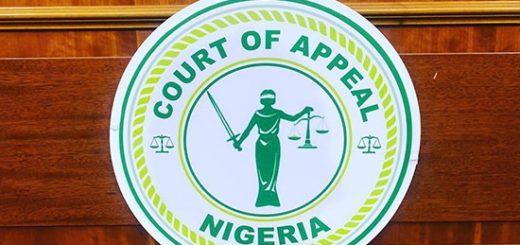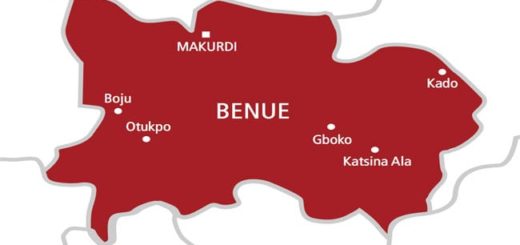Experts cautiously optimistic about CBN’s takeover actions
 Finance and economy experts yesterday gave tacit support to dissolution of the boards of three banks and appointment of a new management by Central Bank of Nigeria (CBN), with a call for caution and fairness in the investigations into affairs of the banks.
Finance and economy experts yesterday gave tacit support to dissolution of the boards of three banks and appointment of a new management by Central Bank of Nigeria (CBN), with a call for caution and fairness in the investigations into affairs of the banks.
Experts said the apex bank acted within its regulatory powers and possible information at its disposal, noting it is a core mandate of the apex bank to protect stability in the banking sector.
They, however, said the apex bank must be judicious and ensure fairness, equity and justice to stakeholders to make its actions more meaningful and less prone to negative interpretations.
Chartered Institute of Bankers of Nigeria (CIBN) reaffirmed its confidence in the reforms by the apex bank, assuring the public of safety of the banking system.
The CBN, on January 10 dissolved boards and management of Union, Polaris, Keystone and Titan Trust bank, citing non-compliance with Banks and Other Financial Institutions Act, 2020.
The apex bank yesterday appointed executives to oversee operations of the banks.
CBN’s Acting Director of Corporate Communications Mrs. Hakama Sidi-Ali, announced the appointments – Union Bank: Managing Director, Yetunde Oni, Executive Director, Mannir Ringim. Keystone Bank: Managing Director, Hassan Imam, Executive Director, Chioma Mangn. Polaris Bank: Managing Director, Lawal Akintola, Executive Director, Chris Onyeka Ofikulu.
The CBN stated that the appointments took effect immediately, emphasising its commitment to immediate action and minimising disruption.
According to the apex bank, the move to reinstate leadership in the affected banks demonstrates the CBN prioritisation of maintaining confidence and stability in the financial system.
The CIBN, in a statement by its Chief Executive and Registrar, Mr Akin Morakinyo, commended the reforms and reassured the public of safety and soundness of the banking system.
The CIBN urged the banking public to continue their transactions and activities without hesitation.
”CIBN will like to reassure the public that Nigerian banks remain strong and resilient and that the CBN is committed to ensuring a stable financial system,” the institute said.
CIBN stated that it would continue to support laudable initiatives of the CBN and stakeholders for a virile economy.
Managing Director, Centre for Promotion of Private Enterprise (CPPE), Dr. Muda Yusuf, said CBN was in a better position to determine the scope and severity of infractions and regulatory breaches that have been committed.
According to him, the main pillar of the banking system is confidence and this makes the financial system sensitive to developments that could undermine the confidence of depositors and investors.
“This is why the handling of investigations concerning these banks need to be done with discretion, caution and care. We cannot afford a run on any of our banks at a time like this. The economy is still grappling with challenging macroeconomic headwinds.
“If there are proven infractions in the management or governance of the banks, discretion should be exercised in dealing with the situation to avoid negative signalling and risk to stability of the financial system. Meanwhile, it is comforting the CBN had assured depositors of safety of their funds. The shareholders also deserve to be assured of safety of their investments, without prejudice to the consequences of proven infractions or breaches of law. This is critical for preservation of investors’ confidence in the economy,” Yusuf said.
A senior investment banker, who craved anonymity, said the apex bank by virtue of its Act and BOFIA has powers to regulate banks and banking activities, including managing systemic and unsystematic risks.
“The decision to move against boards of these banks might be an attempt to grant unfettered access to investigators conducting investigations into allegations levelled against the banks and their owners. Leaving the present boards in place could give an opportunity for the ousted boards to stonewall the investigations. Secondly, appointing new boards could also be seen as effort to provide confidence to the public or other stakeholders that might be apprehensive as to what might happen to the banks post-investigation,” the leading financier said.
Managing Director, Highcap Securities, Mr. David Adonri, said removal of the boards could be a timely decision to forestall erosion of public confidence in the banks and the financial system.
“From information in public domain, the timely removal of the banks’ leadership was to prevent erosion of depositors’ and investors’ confidence in the banks which may culminate in systemic contamination of the industry.
“Banking is built on trust and integrity. It is driven by public confidence. The negative news that have been circulating around leaders of these banks were capable of causing serious reputational damage which the intervention of CBN sought to avert. So far, the interventions have only changed the banks’ leadership. Investors await further information from CBN concerning ownership acquisitions, which underpinned the regulatory intervention,” Adonri said.
Dr. Wahab Balogun of Ambosit Capital Managers described the CBN action as “swift,” noting the cited reasons for the actions, such as regulatory non-compliance, weak corporate governance, and potential threats to financial stability point towards serious lapses in the banks’ operations.
“This raises concerns about potential harm to depositors, financial stability, and trust in the banking system. Removing leadership deemed responsible for these issues can be a step towards correcting course and restoring stability. The swiftness of the action also sends a strong message about the CBN’s commitment to enforcing regulations and protecting the financial system,’’ Balogun said.
With regards to appointing CEOs and executive directors, Balogun said this ‘’provides immediate leadership and ensures continued operations for the affected banks and this helps maintain confidence and prevents undue disruption for depositors and employees’’.
‘’However, the qualifications and track records of the appointed individuals are crucial factors in determining the effectiveness of this move. Concerns remain about whether they possess the expertise and commitment to address the underlying issues in each bank’’, Balogun said.
Speaking on the impact of CBN’s decisions on recapitalisation, Balogun noted ‘’these events likely highlight the need for stricter risk management and governance practices within the banking system. This could lead to tighter regulations and more rigorous oversight during the upcoming recapitalisation exercise’’.
He warned that the recapitalisation process for the three banks might, however, face challenges due to the instability as potential investors may be hesitant to invest in banks with such issues, impacting their access to capital.
Managing Director, S &D Capital Management Limited, Mr Gbolade Idakolo, said ‘’the acquisition of bank follows stringent regulations among which are clear and unambiguous source of funds injection and a range of other regulations which the investors of these banks failed to adhere to based on the special investigation carried out on the banks”.
According to him, the CBN decision to sack the boards of these banks is the right step to ensure that investors do not manipulate the system to conjure non-existent or round tripped funds to acquire banking licences or take over banks with active collusion with CBN officials.
Former Executive Director, Keystone Bank, Richard Obire, said the CBN Act grants it powers to deliver on its mandate of maintaining a sound and stable financial system.
According to him, it appears to have acted on this occasion in furtherance of this mandate using the legal powers conferred on it.
On how the CBN could have handled the matter, better, he said: ‘’Possibly, as there are often different options available on how to better handle regulatory actions in pursuance of even the same objectives.’’
‘’Typically though, it takes the CBN some time and careful analysis of the information at its disposal before acting the way it has done. Optimal timing of its strict intervention also plays into the calculations’’.
Obire said there must have been some period of engagement by CBN with the banks concerned, and the action by CBN could have been assessed by it to be a last resort action.
On how investors may view the action, he said: ‘’Generally, investors desire a sound and stable financial system which can support business. So, if they judge that the CBN’s action is driving towards this objective, no negative fall-outs may be expected from their perspective. The action might even be viewed as positive and therefore produce a positive effect on investor sentiments’’.
On his part, President, Bank Customers Association of Nigeria (BCAN), Dr. Uju Ogubunka, said the CBN exercised its power in relieving the bank chiefs of their jobs.
He said what the apex bank did is in the best interest of the banking sector, customers and the economy. He said although CBN has good evidence under which it acted, it should take it a step further by educating the public on the reasons for its action.
‘’This will reassure the customers that their funds in the banks are safe, otherwise doubts will begin to come in. But I believe the CBN would not, in its wisdom, take the action without strong reasons. I am also sure CBN would have sent bank examiners and supervisors to the banks, and set compliance deadline for them’’, he said.
Despite these steps, Ogubunka, former Registrar, Chartered Institute of Bankers of Nigeria (CIBN), said the apex bank should continue to explain its actions to customers and stakeholders.
Also speaking, Nigeria Country Representative, European Organisation for Sustainable Development, Jide Akintunde, said a linear way to understand CBN’s action is that the bank chiefs had failed to adequately recapitalise the banks among other responsibilities he had.
Read Also: Keyamo to Aviation CEOs: resign if you will be involved in corruption
He believed that the affected bank CEOs and board members earned their sack, adding that with the CBN replacing them, the new directors are expected to succeed where their predecessors had failed.
Still, he said it was the CBN that approved the appointment of the directors that it has now sacked.
“Therefore, it partly bears responsibility for their failure. One hopes that it exercised better judgement in appointing the new directors.
‘’This event has surely contributed to a sense of upheaval and uncertainty in the banking sector. This is not good for investor confidence and foreign investment flows into the banks and the economy. It is a negative development. But perhaps the CBN had to act, hoping the long-term impact would be positive even if in the short-term the market is spooked,’’ Akintunde said.
He said the likely negative impact of the action by CBN may not be better understood if its latest intervention in the leadership of the three banks is viewed as an isolated incident.
‘’But it may become clearer when the intervention is viewed in conjunction with other developments. In the week CBN sacked the directors of Union , Keystone, and Polaris banks, the Economic and Financial Crimes Commission (EFCC) invited some bank CEOs to answer questions in connection with investigations into allegations of misappropriation of budgetary funds for government’s social welfare programmes’’, Akintunde said.
He said the events were creating a spectacle, which is bad for the banking sector and for achieving relevant economic objectives.
‘’Essentially, I am saying that greater caution should be exercised by CBN and EFCC when dealing with issues involving the banks. A sense of a siege on the banking sector is not good for the economy’’, Akintunde said.
An ex-banker and financial analyst, Mr. Bolarinwa Odeyingbo, noted that the preservation of the integrity of a nation’s financial sector or institutions is crucial for maintaining transparency and trust in such a country’s financial reporting.
“The dissolution process of banks can help preserve the integrity of a nation’s financial institution section by ensuring that the banks’ financial records are properly maintained and preserved.
“The official receiver will always need to bear in mind the possibility that the records concerned may, although no longer required for the country’s purposes, be needed for other reasons, perhaps not directly involving the country,” Odeyingbo said.
He, however, warned that to ensure integrity of the banking sector, the dissolution of boards of the banks should be managed with care and attention.
“CBN will have to assess the systematic impact on the sector. This assessment of the expected adverse consequences for the financial system and the economy resulting from the failure should help identify and develop measures that mitigate the systemic impact of the banks’ failure,” Odeyingbo
The Executive Directors
•Chioma Mang, Keystone Bank’s Executive Director
Mang is a lawyer and corporate executive, who, in December 2020, became the managing director and chief executive officer of United Bank for Africa Limited. Uganda.
Prior to her current position, she served as managing director and CEO of United Bank for Africa’s subsidiary in Gabon.
She obtained a Bachelor of Law degree from the University of Reading, United Kingdom and an M.Sc from University College, London.
Chris Ofikulu, Executive Director, Polaris Bank
Ofikulu worked for Diamond Bank, one of Nigeria’s top commercial banks, before joining UBA Group.
There, he held several positions, including bHead of Directorate for South Businesses and Lagos and West Businesses.
In addition, Chris served as the first managing director of Diamond Pension Fund Custodian Limited.
Ofikulu has an MBA from University of Lagos and a BSc (First Class) in Industrial Mathematics from University of Benin. He also attended business schools as Lagos Business School, Pan-African University; IESE Business School, University of Navarra, Barcelona; and Wharton Business School, Philadelphia in the United States.
Mannir Ringim, Executive Director, Union Bank
Before his appointment, Ringim was deputy general manager/regional Head of North West 1 Bank, Fidelity Bank Plc.
He has held this position since 2020.
The CEOs
•Hassan Imam, Keystone Bank CEO
Hassan Imam has assumed the position of Chief Executive Officer (CEO) at Keystone Bank Limited.
Imam succeeds Olaniran Olayinka, who became the chief executive officer and managing director of the bank in March 2020.
With 25 years of comprehensive experience in various facets of banking, Imam has consistently used his expertise to enhance market share across critical sectors.
He holds a Bachelor’s degree in Economics and two Master’s degrees, including an MBA. Imam attended Business School, Netherlands, and is a member of the Chartered Public Accountant.
Imam began his banking career at FSB International Bank in April 1998.
He was the former Executive Director of the North Directorate at Fidelity Bank.
His extensive career includes notable positions as General Manager and Regional Bank Head for Abuja at Fidelity Bank.
He attended renowned institutions, such as Harvard Business School, IESE Business School, and Wharton Business School.
Yetunde Oni, Union Bank CEO
Yetunde Oni, the new CEO of Union Bank has experience spanning 25 years.
Known for her role in originating client solutions, managing teams, and talent development, Oni is recognised as a tenacious leader with a track record of navigating complex business decisions.
She replaces Mudassir Amray
Oni got her first degree in Economics from the University of Ibadan in 1991 and underwent Executive Training at Oxford University in 2016.
She obtained an MBA from Bangor University in 2020
Oni started her banking journey with Prime Merchant Bank’s Treasury & Money Markets Group from where she joined Ecobank Nigeria as a Relationship Manager in the Institutional Banking Group for 11 years (1994 – 2005).
In January 2005, she joined Standard Chartered Bank Nigeria, assuming the role of Senior Account Relationship Manager in the local corporation segment.
Before her managerial appointment with Union Bank, she operated as the first female Managing Director and Chief Executive Officer at Standard Chartered Bank in Sierra Leone, a position she took in January 2021.
Lawal Akintola, CEO, Polaris Bank
Lawal Akintola was the MD/CEO of Fractional Investment Services Limited, a real estate company before he was appointed chief executive officer of Polaris Bank.
He also held the position of executive director of corporate and investment banking at Sterling Bank Plc before setting up Intermediate Equity Partners Limited.
Akintola has over 30 years of experience in the banking industry, with insight into key sectors, such as oil and gas, telecommunications, manufacturing, and other infrastructural projects.
He is a Fellow of the Institute of Chartered Accountants of Nigeria (ICAN), a member of the Chartered Institute of Taxation of Nigeria (CITN) and the Chartered Institute of Bankers of Nigeria (CIBN).
He is also an alumnus of the Lagos Business School, the Columbia University Graduate School of Business and University of Oxford.













